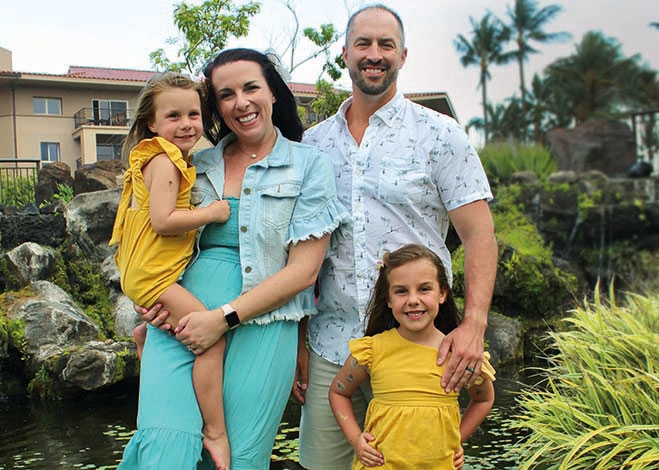Colon Cancer Considerations: Family Care & Screenings
Dec 1, 2022

After losing his grandfather to colon cancer, Tyler Newton works to promote early detection.
When Tyler Newton was 12 years old, his grandfather was diagnosed with late-stage colon cancer. “He had such a playful side,” Newton recalls. “I remember having a family reunion, and my dad and grandpa were sharing stories, and we all laughed so hard we cried.” Six months after his diagnosis, his grandfather passed away.
The experience had a lasting impact on Newton, who is the operations executive at Adventist Health Sonora. He saw the importance of preventative screening and how it can affect many lives. Now, he’s working with hospital leadership and the philanthropy team to open a comprehensive digestive health center right here in Sonora so that everyone can access the services they need to prevent or treat diseases of the digestive tract.
Further Reading: What To Expect For Your First Colonoscopy: 8 Questions, Answered
Early detection
The American Cancer Society recommends that adults age 45 and olderget a colonoscopy every 10 years. But many people skip or delay this screening. Doctors found Newton’s grandfather’s cancer when he went in for his first colonoscopy in his early 70s. “At that point, it was essentially untreatable,” Newton recalls.
During a routine colonoscopy, doctors examine thecolon and rectum for signs of cancerand polyps, small growths that could develop into cancer. Because polyps can take several years to develop into cancer, they can be surgically removed if they are found during a colonoscopy. That’s why Newton and his family make sure they keep up onpreventative screenings. “My dad had his first colonoscopy at 45, and they found polyps,” Newton says. “Getting a colonoscopy will be part of my routine, too.”
Growing community needs
Adventist Health Sonora’s current gastroenterology (GI) lab has three procedure rooms for colonoscopies. And with nearly 100,000 people living in Tuolumne and Calaveras counties, providers are at capacity for these screenings. “Sometimes patients can’t get in for several months,” Newton explains. “When the hospital was built in 2004, there just wasn’t that level of demand in the community.”
Newton and the project team are helping the hospital catch up. In its new, expanded location, the planned digestive health center will have six GI procedure rooms, doubling the current capacity for providers to conduct colonoscopies and other digestive tract procedures.
The center will have the latest GI technology, too, Newton says. “We are working with our GI physicians to determine what technology and equipment we need to be able to better serve the community so they don’t have to drive elsewhere for care,” he says, “and we designed the new space to fit these standards.”
Raising hope
Newton has been hands-on throughout the planning of the digestive health center, from early conversations to coordinating design and construction proposals.
He’s working closely with Andee Houser, director of philanthropy for Adventist Health Sonora, to support the project, with a goal of raising 20 percent of the total cost through community donations.
For Newton, this is all about giving the community hope and honoring his grandfather. “When I was 12 and he was in his 70s, I thought that was so old. But as an adult, I realize that’s not old at all,” he says. “There is still a lot of life to live at that point, and too many lives are cut short by not having the right access. We’re making sure that’s not the case in our community.”


